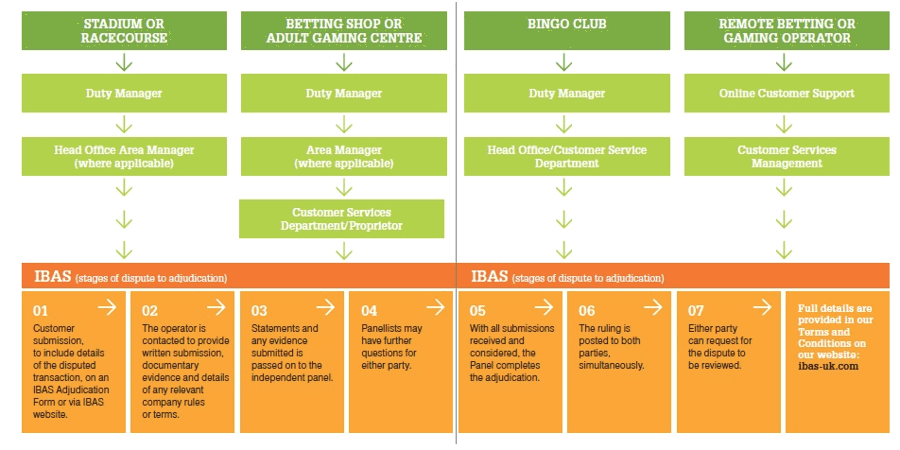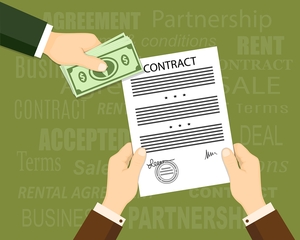 People are naturally rather cynical, so it’s little surprise that many don’t trust bookmakers, casinos and betting companies in general. Unfortunately, not trusting them isn’t a reason to take them to court, but there are some reasons why you might wish to do so. Most of the time, claims against bookies and betting companies can be settled by contacting them directly or by speaking the industry arbitrator, the Independent Betting Adjudication Service.
People are naturally rather cynical, so it’s little surprise that many don’t trust bookmakers, casinos and betting companies in general. Unfortunately, not trusting them isn’t a reason to take them to court, but there are some reasons why you might wish to do so. Most of the time, claims against bookies and betting companies can be settled by contacting them directly or by speaking the industry arbitrator, the Independent Betting Adjudication Service.
On occasion, though, there are problems that IBAS alone can’t solve. Whether it be that they’ve refused to pay out a winning bet, cancelling a bet for seemingly no reason or because they’ve failed when it comes to their GDPR responsibilities, it sometimes gets to the point where a punter feels as though that have no choice but to go down the legal route. Why does it happen and what does such a thing entail?
Suing A Betting Company

The manner in which the betting industry is set up is such that if you have a problem then the first thing you need to do is speak to the company directly. The majority of disputes are solved in this manner, but sometimes they aren’t willing to give you what you think you deserve. When that happens, your next step is to contact the Independent Betting Adjudication Service, more commonly referred to by the acronym IBAS.
The reasons for contacting IBAS will be numerous, but it could be something such as a company refusing to pay out a withdrawal that you’ve requested. Usually this is because they need more information from you, which is often the case when betting companies are trying to avoid being accused of money laundering. IBAS will theoretically work as an impartial judge on the case, with a panel of experts making a judgement on the matter.
It’s not uncommon for that to still not reach the conclusion that the bettor was hoping for, but it is not a legally binding decision and there is no prejudice for any further court proceeding. This means that punters can turn to the courts in cases where they’re still not happy, though the betting companies have to abide by IBAS’ decision over amounts worth up to £10,000. If you’re still not happy, you’ll need to get in touch with a solicitor and look to make the next move: court.
Read The Terms & Conditions
 When you sign up with a betting company and place a wager, you’re agreeing to a contract. There are terms and conditions that you’ll have agreed to, even if you didn’t realise they existed or read them when you agreed to them. It’s really important to read through the terms and conditions before you look to take a betting company to court, because it’s possible that the issue in question is covered by them.
When you sign up with a betting company and place a wager, you’re agreeing to a contract. There are terms and conditions that you’ll have agreed to, even if you didn’t realise they existed or read them when you agreed to them. It’s really important to read through the terms and conditions before you look to take a betting company to court, because it’s possible that the issue in question is covered by them.
This is also why the free service offered by IBAS is such an important stage in the process; the IBAS panel will read through the terms and conditions to to identify any problem areas with your claim. Unless you feel capable of proving that the terms in question are unreasonable, the chances are that you’ll lose in court if the issue you want to sue over is covered by the company’s terms and conditions.
You can take a gambling company to court for not paying out on winnings without going through IBAS, but ultimately it wouldn’t favour your case if you hadn’t at least tried to use the independent arbitrator. However, there may be a case if you believe that the betting company in question has contravened their own terms and conditions. Whilst this is extremely unlikely, it’s why it’s so important to ensure that you’ve read them thoroughly so that you can spot any mistakes that they’re guilty of.
A bookmaker might, for example, claim that there was a palpable error on the bet that you’ve placed. A palpable error is one that is obviously a mistake, but some companies might try to claim that there was a palpable error when the mistake made was anything but obvious. There are some other examples of when they might turn to their terms and conditions, such as Bet365 did in 2017.
Bet365 & The Lucky 15 Saga
 Bet365 ended up in a dispute with a teenager over the fact that her account was bolstered to the tune of £25,000. She placed a series of Lucky 15 bets on races that favoured the punter because they were Each-Way races, spending nearly £1,000 per bet. They won more than £1 million, but Bet365 refused to pay out an account of the fact that they believed that the bettor had breached their terms and conditions.
Bet365 ended up in a dispute with a teenager over the fact that her account was bolstered to the tune of £25,000. She placed a series of Lucky 15 bets on races that favoured the punter because they were Each-Way races, spending nearly £1,000 per bet. They won more than £1 million, but Bet365 refused to pay out an account of the fact that they believed that the bettor had breached their terms and conditions.
One of the terms and conditions of placing bets with Bet365 is that you can’t deposit money from someone else; indeed, this is common for most bookies because of the risk of money laundering and fraud. Bet365 never disputed the fact the bets were winners, just how the money that placed them wasn’t done so in an acceptable manner.
Bet365 chose to withhold the money because they believed that the funding had come from a person that had been banned from betting with them in the past. The fear from the bookmaker’s point of view was that winnings paid out in these circumstances would likely lead to a flood of other banned bettors opting for a similar method of getting their wagers taken by the company. In the end, Megan McCann’s case was settled on ‘favourable terms’.
The Punter The Won £1.7 Million
 Another bettor that took a bookmaker to court was Andy Green, who had been playing Betred’s blackjack game on his phone and believed that he’d won £1.7 million. The betting company refused to pay out, however, citing the fact that the game was not operating properly and had made an error. Green decided to take them to court, with the High Court judge in the case ruling in his favour and making Betfred pay him his winnings plus interest.
Another bettor that took a bookmaker to court was Andy Green, who had been playing Betred’s blackjack game on his phone and believed that he’d won £1.7 million. The betting company refused to pay out, however, citing the fact that the game was not operating properly and had made an error. Green decided to take them to court, with the High Court judge in the case ruling in his favour and making Betfred pay him his winnings plus interest.
Green had been playing the Frankie Dettori Magic Seven Blackjack game on Betfred when he triggered the jackpot, with Betfred not making any suggestion of issues when he contacted them over his winnings. It was only a few days later that they got in touch with him and reported a ‘software error’, saying that they wouldn’t pay out the money. They offered him £60,000 as a ‘goodwill gesture’, on the proviso that he never talk about it again.
Understandably, Green refused the offer and instead took Betfred to the High Court. The betting company said that the terms and conditions of the game meant that they could not pay if it had not been operating properly, but the judge said that the terms and conditions were ‘inadequate’ and that they were ‘not transparent or fair’, so Betfred shouldn’t ‘rely upon them’, meaning he received a £2 million payout.
Terms Are Not Enough, They Need To Be Fair
 What the above example shows is that terms and conditions in themselves are not necessarily a get out clause, those terms need to be fair and transparent. Therefore, if you have a grievance that is technically covered by the T&C’s but you think those terms are not clear enough, not accessible or just downright unfair then you might have a legal case.
What the above example shows is that terms and conditions in themselves are not necessarily a get out clause, those terms need to be fair and transparent. Therefore, if you have a grievance that is technically covered by the T&C’s but you think those terms are not clear enough, not accessible or just downright unfair then you might have a legal case.
The important point here is when we talk about ‘fair and transparent’ we are talking from a legal perspective. Just because you feel something is unfair doesn’t mean a judge would see it that way.
The only way to know if you have a case is to get professional legal advice but this will cost money so it is always worth exploring an independent arbiter like IBAS first. These bodies have legal experts that can at least give you an insight into an legal arguments before you pursue a court hearing.
The sad reality is even if you think you have a legal case and a lawyer agrees there will still be a big mismatch in resources between you and the betting company. Big brands will have teams of lawyers and legal experts and they can use many legal tricks to prolong cases and ultimately inflate claimant costs. It doesn’t mean you shouldn’t take a company to court if you feel you have been wronged but do it with an objective mindset and take professional legal advice first.
